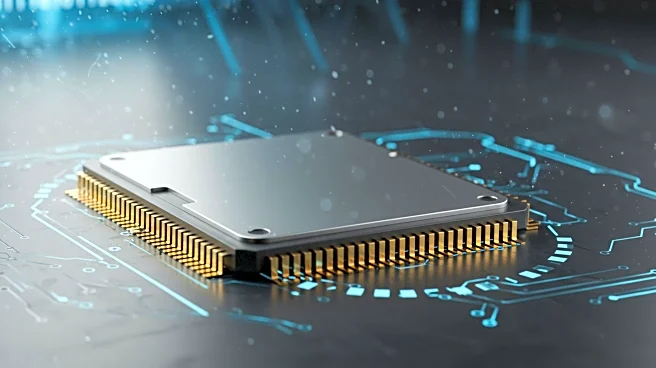What is the story about?
What's Happening?
Commerce Secretary Howard Lutnick stated that Intel must provide the U.S. government with an equity stake in exchange for CHIPS Act funds. The Trump administration is considering a 10% stake in Intel, which would make the government the largest shareholder. The move aims to convert grants into equity, aligning with President Trump's strategy to secure U.S. technological independence. Intel's stock has risen amid speculation about the deal, and Softbank has announced a $2 billion investment in the company.
Why It's Important?
The potential equity stake in Intel represents a significant shift in U.S. economic policy, emphasizing national security and technological self-sufficiency. By acquiring a stake, the government seeks to strengthen domestic chip production and reduce reliance on foreign suppliers. This move could impact Intel's business strategy and market dynamics, as the company navigates increased government involvement. The decision aligns with broader efforts to enhance U.S. competitiveness in the semiconductor industry.
What's Next?
The Trump administration is evaluating the potential benefits and risks of acquiring a stake in Intel, with implications for the company's future growth and strategic direction. The government may pursue similar arrangements with other CHIPS recipients, further reshaping the semiconductor industry landscape. Stakeholders will closely monitor developments and adjust their strategies based on the government's actions.
















